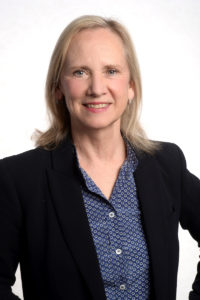
Hi everyone, I would like to begin my first post for 2021 with a great big Thank you!! As we continue to face challenging circumstances I am heartened by your resilience and dedication. You’ve adapted to the changes that we’ve had to accommodate over the long months, and you’ve championed through to ensure we provide all the necessary services for our community members; you’ve forged ahead making tremendous strides in our institutional service and systems modernization plans toward achieving the University’s vision for service excellence.
It’s February and I want to acknowledge that it’s Black History Month. A month that provides a focused opportunity to celebrate Black culture and heritage and to recognize all the tremendous contributions Black communities and people have made over the years. The University commemorates Black History Month and re-affirms its commitment to action on anti-Black-racism.
I have been doing a lot of reading and reflection recently about allyship and what it means to be an ally. While I acknowledge that I do not fully understand everything, I am dedicated to learning, to listening, and to understanding how I fit in to an oppressive system and how I can help find ways to change that system.
As a highly diverse division, we are committed to embedding equity, diversity, and inclusion into the very culture of our division, from the grassroots to the most senior levels. We will actively participate in the University’s actions and commitments toward equity, diversity, and inclusion, and to connecting with one another in kinder ways to become better allies to our colleagues and community members.
February also brings with it noticeably longer daylight hours and heightened anticipation about the idea of things going back to normal. If the past 11 months has taught us anything, is that we should really be reflective of everything in our lives, including the part we play to create positive change for a future that we would be proud to leave for future generations.
As I think about future generations I think about our society, our world and what it would look like years from now. I also wonder what I and others can do to preserve it or help make it better for our grand kids and their grand kids; I think about how we can create a more sustainable world.
Sustainability is about meeting our own needs without compromising the ability of future generations to be able to meet their needs*. I used to feel overwhelmed at the thought of whether I could make a difference, but then I remember the poignant words by Margaret Mead and I am encouraged.
“Never doubt that a small group of thoughtful, committed people can change the world. Indeed, it is the only thing that ever has”.
Margaret Mead
Sustainability has always been a core value at York. In 1968 the University established the Faculty of Environmental Studies-the first of its kind in North America. In 2017 the University released its sustainability strategy as part of its ongoing commitment to making positive change for our communities, our planet and for our future. York’s Sustainability Strategy is underpinned by three pillars, People, Knowledge and Places. As an institution that prepares students to be global citizens, we view our campuses as labs for generating innovative solutions to the many challenges confronting the world today – be they environmental, social, or economic. By focusing on these factors, we help to create a sustainable society, one that we can be proud to leave for future generations.
York University is committed to creating a culture of sustainability; a culture in which sustainability is incorporated into everything we do; it is the lens through which all our actions are guided. The University’s Academic Plan (UAP) 2020-2025 and the six priorities that support the plan, position York as an agent of positive change for our students, for higher education, for society at large, and for the planet. Each of the six priorities of the UAP are interdependent and are wrapped around the United Nations Sustainable Development Goals.
Sustainable development is the process in which a community develops attitudes and ongoing actions to strengthen its natural environment, economy, and social well-being. It is an enduring mission. By committing to sustainable development, we are committing to sharing the responsibility and being responsible for our own actions.
In December 2020 the University announced a progressive goal of achieving Carbon Neutrality in 2049. The announcement has been a catalyst for the University to begin work on developing an action plan to meet its goal of carbon neutrality on or before 2049. The action plan under development includes:
- Measuring greenhouse gas emissions and the ecological footprint of York University and its institutional activities to measure and manage reductions in those emissions, while being able to report on broader sustainability goals -this is a collaborative effort with the Ecological Footprint Initiative.
- An Energy Management Plan to accelerate greenhouse gas emission-reductions from the University’s buildings.
- Partnership with other stakeholders such as the City of Toronto and the Green Will Initiative, a network of property owners working together towards achieving Toronto’s net-zero emissions target.
- A climate awareness campaign that includes community engagement to generate action and research, and to use York’s campuses as ‘living labs’ through experiential education.

Leadership in sustainability takes commitment, innovation, partnership and, yes, time. But we have a very good opportunity to lead the way; each of us through our own small actions. I, like many of you am driving less, I also eat more plant-based foods and I try planting as many trees as I can, and as often as I can.
I am also fortunate to be joined by a leadership team ready to steward our division on this journey. This journey we undertake is not only the right one for our division but is fundamental to living our values as a University. I invite you to join us, and I would love to hear from you about the things that you are doing on this voyage to creating a more sustainable world.
With great appreciation,
Carol
*Brundtland Commission

1 Trackback or Pingback